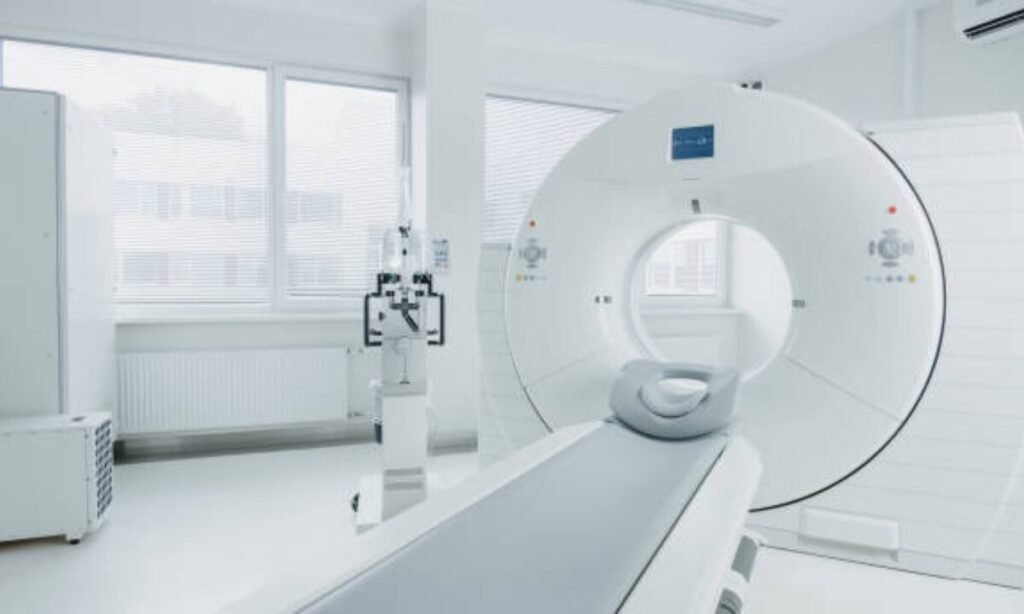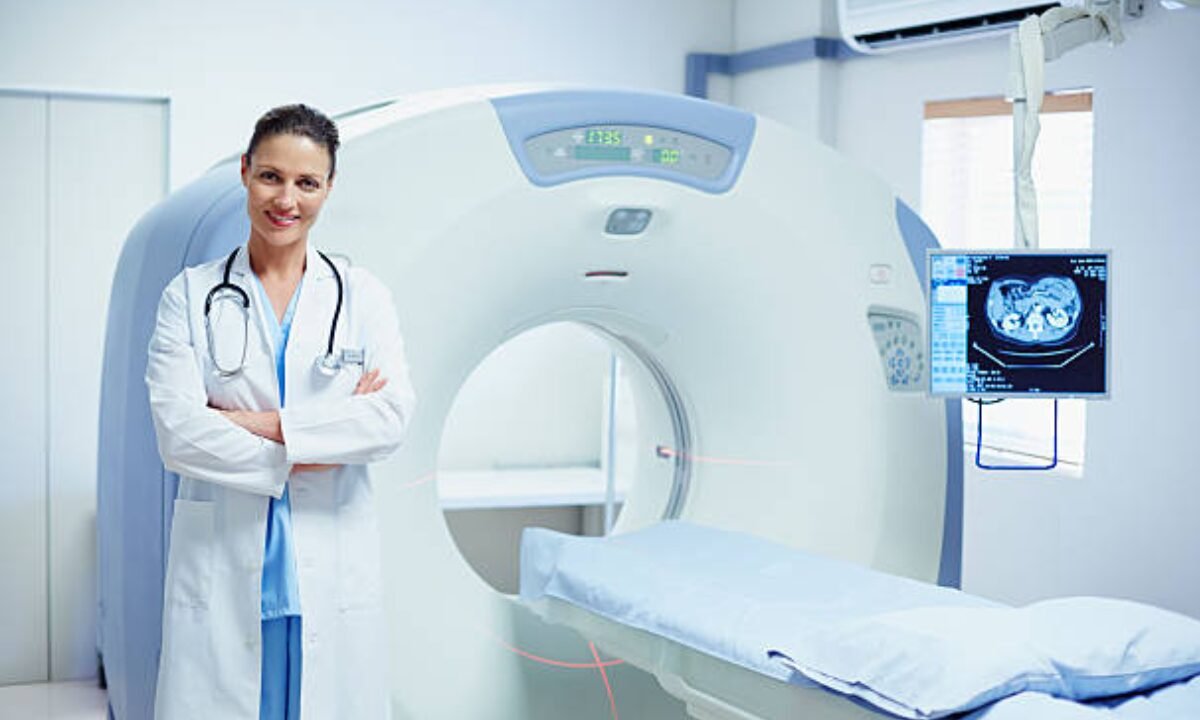Computed Tomography (CT) scanning is an advanced technique for the treatment and diagnosis of diseases, especially cancer. In this article, we will explore all about how CT scans function, the benefits of using them as opposed to other types of imaging procedures, and how they play a role in diagnosing cancer, treating it, and monitoring the progress throughout future treatment.
What is a CT scan?

CT, also referred to as CAT stands for computer tomography whereby it employs X-rays and a computer to generate cross-sectional images of the body or a specific part of it. The patient lies on a table that moves into a large round-shaped machine for the duration of the test. Radiographic measurements are made several times around the body and are utilized by computers to form a picture of internal body construction.
An example of an imaging test is the Computed Tomography (CT scans) which can produce incredibly detailed images of any part of the body, including the head or limbs and internal organs. Parts of the body that can be viewed on normal X-rays such as bones cannot be viewed on CT scans but soft tissues, organs can be viewed.
What are the benefits of CT scans in cancer diagnosis?
CT scans have several advantages over other imaging methods that have made them invaluable for cancer diagnosis and monitoring:
- Detailed cross-sectional images: They are more precise than X-ray or Ultrasound scans since the latter provides two dimensions, while CT scans provide sectioned images of the body in 360 degrees. Hence interpretation allows doctors to have a structural view and try to locate any anomalies that might not be evident from other scans.
- High spatial resolution: CT scans are very high resolution typically achieving resolution on a few millimeters. This makes it possible for doctors to observe small details and identify tumors or any other abnormal areas which in most cases are only a couple of millimeters in size thus making the chances of early diagnoses much higher.
- Fast acquisition: A full body CT scan requires only a few minutes as opposed to other methods like MRI which may take as long as 30 minutes or more. This speed also makes repeated scans for follow-up easier.
- Can detect different tissue densities: Based on their density, different soft tissues in the body like organs, fat, and tumours show up as varying shades of grey on CT images. This property allows the detection of abnormalities that otherwise look similar to normal surrounding tissues.
CT scans provide detailed cross-sectional images, revealing abnormalities that might be missed by other imaging methods. They’re crucial for early cancer detection, monitoring treatment response, and identifying potential recurrence. This makes CT scans an essential tool for both cancer diagnosis and ongoing management.
In what way is CT scanning useful in cancer detection?
When the cancer is considered likely due to signs and symptoms or due to abnormality picked by a screening examination, CT scans may be part of the initial investigations to either confirm or exclude cancer. Some common ways CT scans are used in initial cancer diagnosis are:
- Lung cancer screening: Low-dose CT scans of the chest are applied in the screening of lung cancer among high-risk clients. There are cases that small pulmonary nodules which are signs of early stages of cancer can be detected.
- Colon and abdominal cancers: Abdomen and pelvis CT scans commonly with the contrast dye help in the early diagnosis of colon, ovarian, and other GI cancers in localised form without metastasis.
- Head and neck cancers: An MRI scan of the head and neck is used in staging suspicious lesions in the throat, voice box, or sinuses, and a biopsy of suspicious lymph nodes for diagnosis while the addition of PET-CT scans of the head and neck area gives the detailed images to stage suspicious lesions in the throat, voice box, or sinuses and biopsy of suspicious lymph nodes for diagnosis.
- Lymph node assessment: Even small metastatic tumors in lymph nodes that are not palpable can be detected with CT. This helps determine the stage and prognosis.
- Distant metastasis: Whole body CT or PET-CT scans are done in advanced cancers to look for spread to distant organs like the liver, lungs, or bones to detect distant metastasis.
Monitoring cancer with serial CT scans
Once cancer is diagnosed and treated, repeat CT scans are invaluable for long-term monitoring to check treatment response, detect recurrence or progression early, and guide management decisions.
- Assessing response to chemotherapy or radiation therapy: Pre and post-treatment CT scans assist the doctors to establish whether the tumor was reduced thus revealing whether the treatment is effective. There is an expectation of shrinkage of the tumor and therefore, significant shrinkage means the treatment is effective.
- Detecting recurrence: For cancers with a risk of recurrence like lung cancer, regular CT scans after initial treatment help detect any new tumors within 2 years when they are still localized and treatment options may be curative.
- Monitoring metastatic disease: In cancers that have spread, CT scans every few months are used to track the response of tumors to systemic treatments and watch for the growth of existing metastases or the development of new ones.
- Guiding biopsy/treatment: Suspicious findings on follow-up CT scans that indicate possible recurrence or new lesions are biopsied for confirmation. CT also guides procedures like radiofrequency ablation or placement of catheters for targeted internal radiation.
Conclusion
To conclude, CT scanning has brought a tremendous difference in the management of cancer through the provision of high-resolution cross-sectional images of the body without the need for direct contact. From the time of diagnosis to follow-up, CT has been the most used imaging test in diagnosing cancer, assessing the spread of cancer, evaluating the effectiveness of treatment, and reviewing recurrence.
Together with other modalities like PET scanning, CT enables more accurate and personalized care across the entire cancer journey. Koshikaa is a well-known CT scan diagnostic centre offering various services at reasonable cost. Feel free to reach out to our radiologist if you have any specific concerns.

